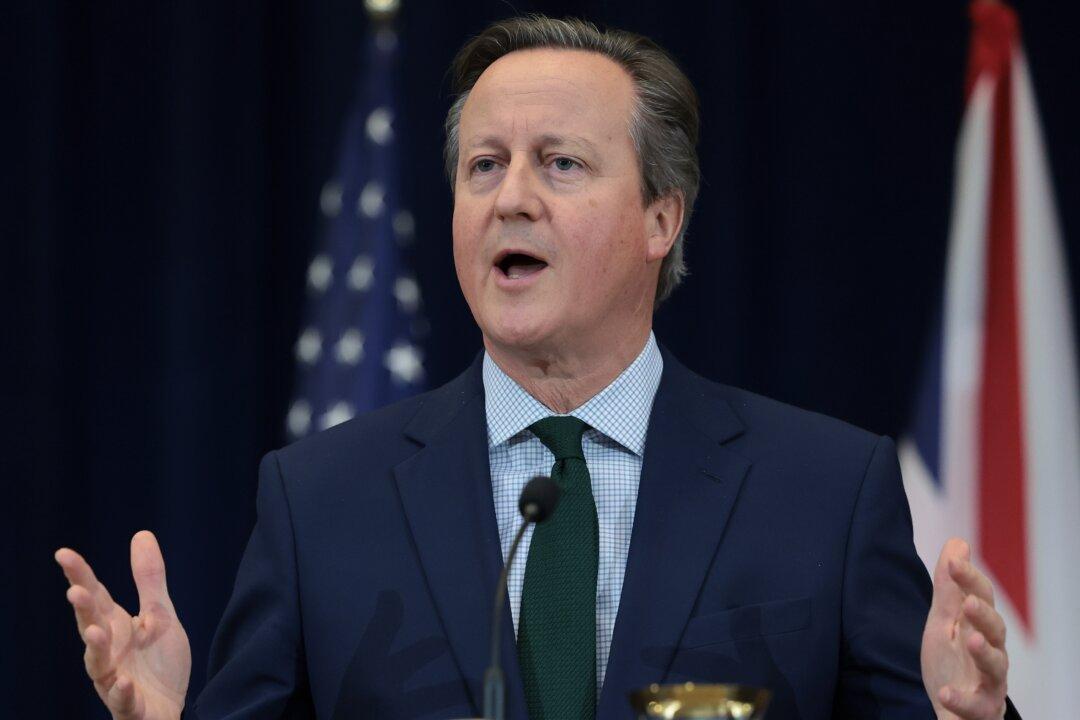Western Democracies now need to “harden” and “be very clear-eyed” about China, British Foreign Secretary David Cameron told an international security forum in Washington on Thursday.
The new Lord Cameron of Chipping Norton, who is known for ushering in the so-called golden era of Sino-British relations when he was prime minister, defended his policy of engagement but said the East Asian country “has changed” since he left office.





